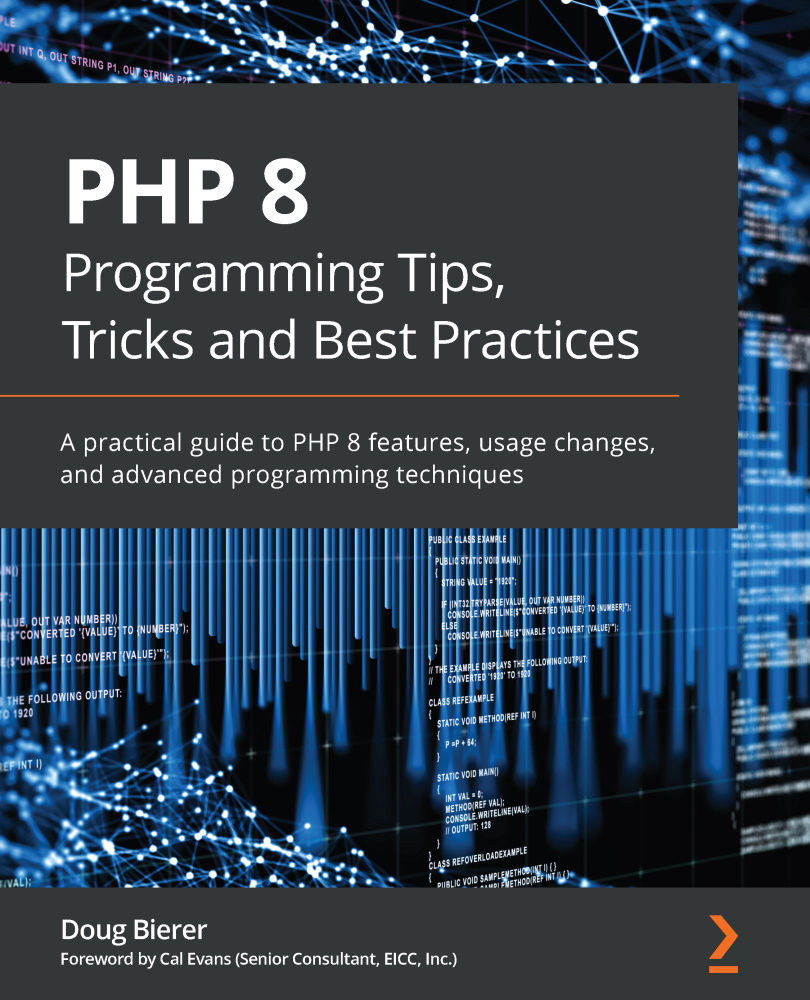Overview of this book
Thanks to its ease of use, PHP is a highly popular programming language used on over 78% of all web servers connected to the Internet. PHP 8 Programming Tips, Tricks, and Best Practices will help you to get up-to-speed with PHP 8 quickly. The book is intended for any PHP developer who wants to become familiar with the cool new features available in PHP 8, and covers areas where developers might experience backward compatibility issues with their existing code after a PHP 8 update. The book thoroughly explores best practices, and highlights ways in which PHP 8 enforces these practices in a much more rigorous fashion than its earlier versions.
You'll start by exploring new PHP 8 features in the area of object-oriented programming (OOP), followed by enhancements at the procedural level. You'll then learn about potential backward compatible breaks and discover best practices for improving performance. The last chapter of the book gives you insights into PHP async, a revolutionary new way of programming, by providing detailed coverage and examples of asynchronous programming using the Swoole extension and Fibers.
By the end of this PHP book, you'll not only have mastered the new features, but you'll also know exactly what to watch out for when migrating older PHP applications to PHP 8.



 Free Chapter
Free Chapter
